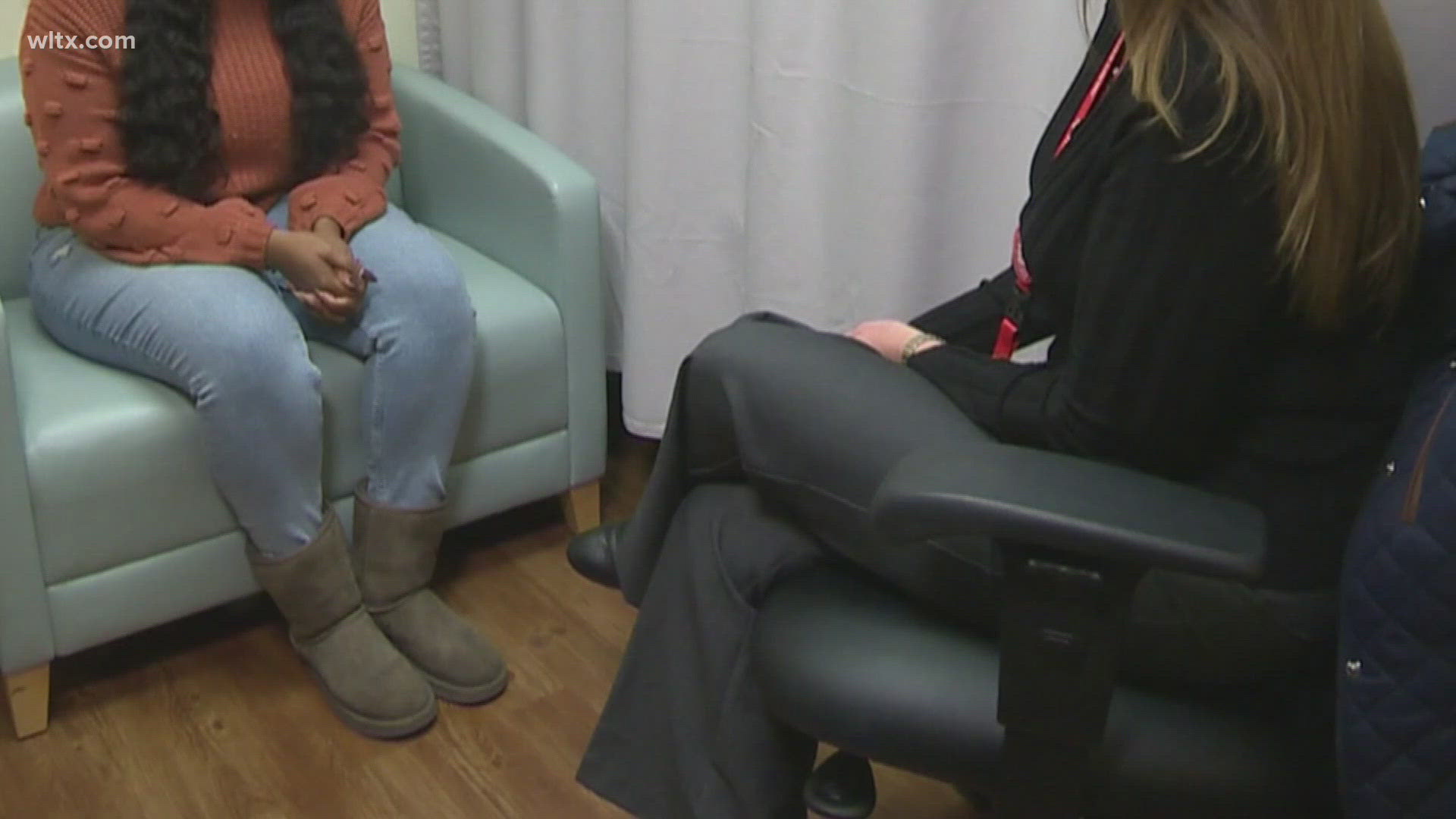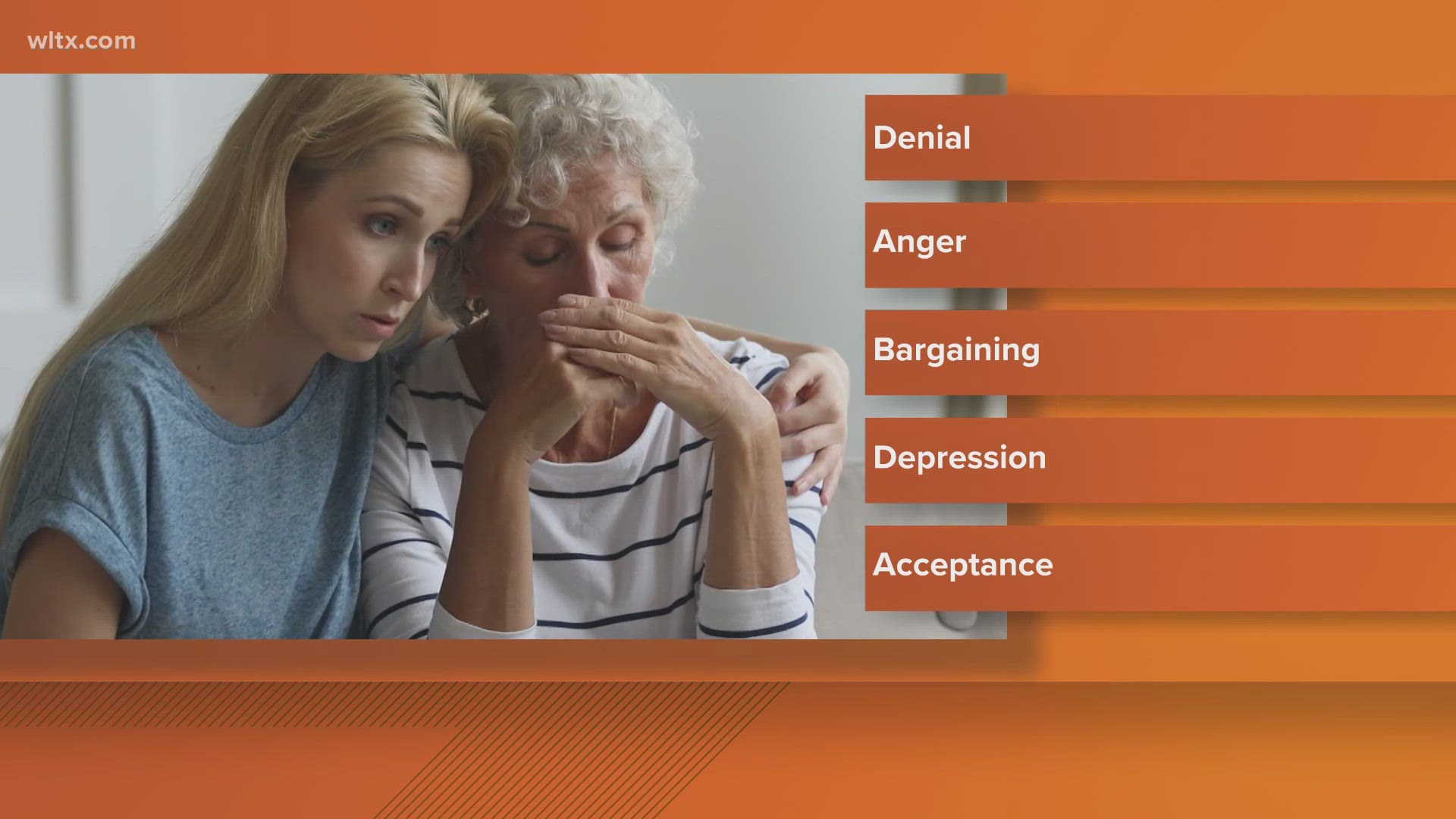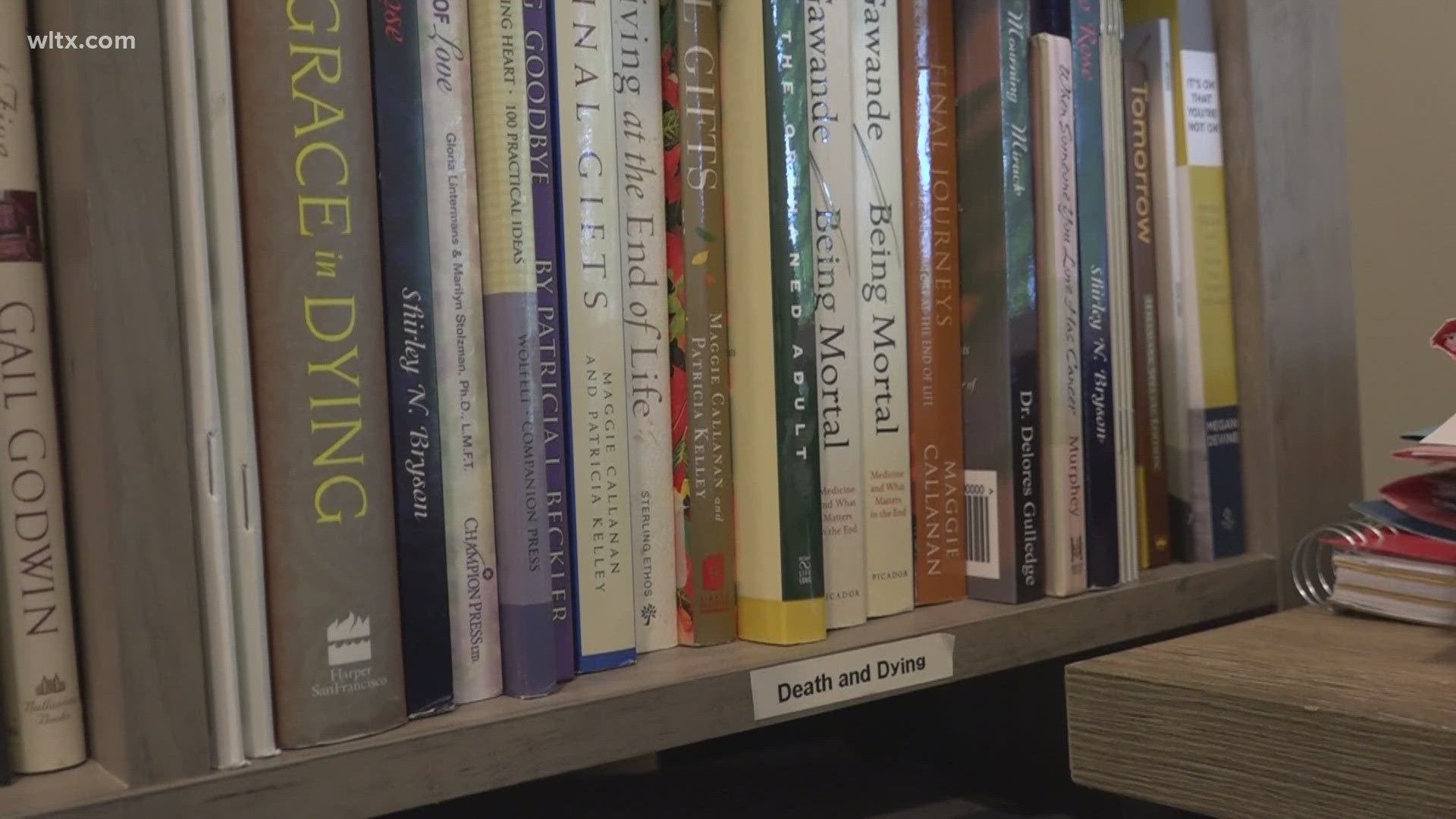COLUMBIA, S.C. — Recent data shows that more Americans are caring for their elderly parents. Recent studies indicate that between 47% and 71% report grief while caring for a loved one and 20% experience complicated grief after death.
Columbia Gerontologist Dr. Macie P. Smith says grief is one of the things that people don’t include when thinking about caregiving and supporting the elderly. She also says there are five stages of grief that everyone must experience to move forward.
"They are denial, then anger, then bargaining. Especially when the person has not passed on yet, you can grieve someone who is still there. It's called anticipatory grief. So that's when you bargain with God. Then there's depression, and then acceptance, because what we know is that grieving and mourning become a part of your life now. It's how you accept it and how you incorporate it into your day-to-day does depend on the person," says Dr. Smith.
Specifically in South Carolina, there were well over 700,000 family caregivers in 2023. Family caregivers spend thousands of hours helping relatives and friends in need including eating, getting dressed, taking medication and handling affairs such as bills and medical appointments. This time spent supporting the care recipient can equate to a large void for the caregiver once the person is no longer there.
Dr. Smith says there is a difference between grief and mourning. Grief is internal. How are you feeling as a result of the loss, fear, sadness and loneliness? Mourning is what you do following that grief. Some of those actions include planning a funeral, eating a lot, not eating enough or lashing out.
"One of the things that we typically say to people who are grieving is 'How are you doing?' It's not something you want to say, because you can kind of guess how they're doing, especially if you've gone through it," says Dr. Smith. "And that's another thing. You don't want to say, 'I understand what you're going through', because now you're going to get into how it affected you. Don't take the attention and the support off that person and put it on you. Some of the things you want to say is, 'I don't know what to say,' 'I'm praying for you,' 'I'm here for you', and most importantly is just to be present."
According to Smith, she advises that people take a proactive approach by:
- Having a proactive discussion on long-term care: While your loved ones may be coherent now, things can change suddenly, leaving you devastated. “Have the conversation now while your parents are mentally healthy,” said Dr. Smith. “Understand what they want in terms of long-term care and what their ultimate wishes are.”
- Complete estate planning in advance: Many people shy away from the legal aspects of the end of life. While many have simple wills, Dr. Smith says that doubling down on this task now can also help with caregiving tasks. “Having a power of attorney is also important should you become incapacitated, and this should be decided on in advance. This is also the person you have the conversation with about your long-term care.”
- Seek a knowledgeable therapist or resource group in advance: Proper guidance and support will help as you navigate the ups and downs that grief brings. Always remember to be patient, gentle with yourself as you go through the experience. There is no right way to grieve. It must be done in your own time; not anyone else’s.
Dr. Smith also notes that grief doesn’t always entail the loss of a life.
“It can also occur through life transitions, changes in identity and lifestyle, and both large and small traumas,” states Dr. Smith. “You may be grieving a personal illness diagnosis or even an idea of what you thought your life would look like according to your age. Grief can truly be tricky but having the resources in place is certainly key.”
If you are going through the grief process, there are resources that can help.
Going to therapy can be a vulnerable process, and you may prefer to speak with someone from the safety and comfort of your home, via online therapy. Churches and other places of worship are also a safe haven for those going through a loss. Dr. Smith says a support system is key.
"Get connected and stay connected to a cause that's bigger than yourself, because when you need someone, the village is already there. I always talk about reaching out to your your faith-based organization. And if you don't belong to a faith-based organization, just go to the one closest to you. They're there. They'll be available to you. There are grief counselors. There are counselors that specifically deal with grief, and so I would recommend anyone who's going through the grieving process or even mourning for a really long time and having difficulty just really accepting the loss and how their life has changed, I would recommend that they reach out to a grief counselor," says Dr. Smith.



